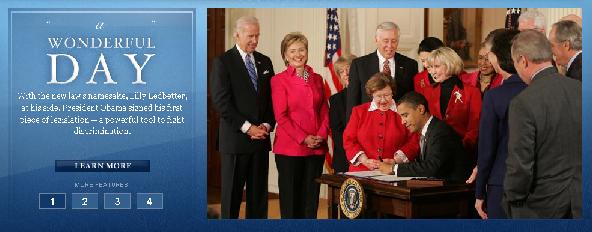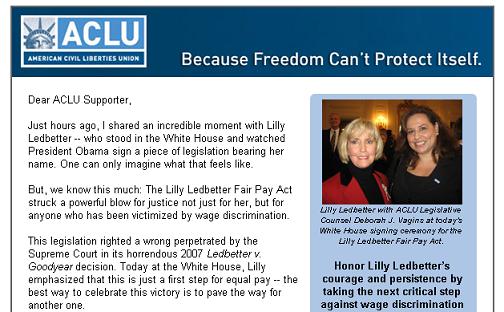. . . or does he?
Friday afternoon, the White House blog announced that the American Recovery and Reinvestment Act of 2009 was posted online for public comment. This is good evidence that the President intends to honor his campaign promise to post legislation online and take public comment for five days before signing it.
But it’s not great evidence of that.
The Whitehouse.gov post went up at 2:05 pm, but the House didn’t vote until 2:24 pm and the Senate voted at 05:29 pm. (Click on the “votes” to see how your representatives did.) As of Saturday afternoon, the Thomas legislative tracking system doesn’t indicate that the bill has been presented to the President yet. And news reports indicate that the President will sign the bill on Monday, three days after it was “pre-“posted.
Regular order, Mr. President. When a bill is presented to you, post it online (at a consistent place on your Web site, not just at ad hoc URLs as you’ve done up to now). Then wait five days, reviewing the comments of the public as you promised to do when you asked the public to elect you.
The steps the White House has taken toward implementing the President’s promise are good steps. (In this Cato daily podcast, I characterized the President’s record on transparency so far as “mixed.”) But the promise is not fulfilled until bills receive five days online airing after they have been presented.
Presentment is a distinct, constitutional step in the legislative process. Until every non-emergency bill is posted online for five days after presentment and before signing, President Obama will look like he’s being driven by events and maneuvered by his elders in Congress.




 The Technology Liberation Front is the tech policy blog dedicated to keeping politicians' hands off the 'net and everything else related to technology.
The Technology Liberation Front is the tech policy blog dedicated to keeping politicians' hands off the 'net and everything else related to technology.